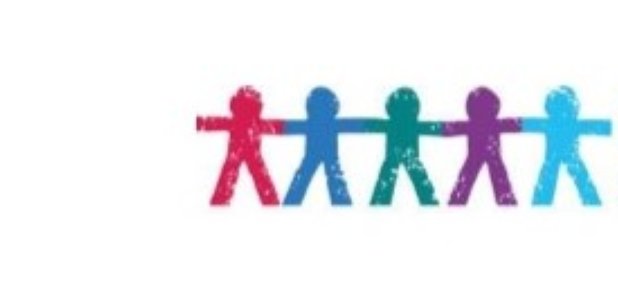Agencies to improve to protect Northants children
5 June 2019, 12:48 | Updated: 5 June 2019, 13:01

Two separate Serious Case Reviews have just been publised into the murders of two young children in Northamptonshire, by men with histories of domestic abuse, drug use and violence.
The Northamptonshire Safeguarding Children Board (NSCB) commissioned the reviews following the murders of Child 1 in Northampton in December 2017 and Child 2, in Kettering in April 2018.
A number of recommendations have been put forward intended to improve professional practice and strengthen the safety net, seeking to prevent such tragic outcomes from happening again.
CHILD ONE - SERIOUS CASE REVIEW
Child 1 was two years-oldwhen he died at Northampton General Hospital in December 2017. Medical examinations confirmed he had died of a cardiac arrest after suffering multiple injuries, injuries that led to the arrest and subsequent conviction for murder, of his father, in October last year. He is serving a 24 year minimum term.
The NSCB review focused on the last two months of his life, starting from the point at which his father's paternity was established and he assumed shared care arrangements for Child 1.
By mid-October 2017, police discovered Child 1 was in the father's care in a property where drugs were present in addition to which there was evidence suggesting the toddler was being left on his own for long periods.
The multi-agency child protection conference which followed this single incident concluded the case failed to reach the threshold for a Section 47 inquiry gauging whether a child is "suffering or likely to suffer significant harm".
Instead, a social worker was allocated to the family, but right up until two days before his actual death, no observations on Child 1's welfare had been recorded and consequently, the report states: "{Child 1's} safety was seriously undermined with lost opportunities to place him at the centre of any analysis of risk".
The report also notes how the original multi-agency strategy discussion meeting, which decided not to escalate the support around Child 1, had "failed to fully appreciate the significance of {Father's} chronic history of domestic abuse and extensive history with the police for drug-related offences".
The report summarises the inputs submitted to the Review author, including Children's Services (now Children First Northamptonshire) which acknowledges a Section 47 inquiry should have been triggered in October 2017 as there were "certainly more risk factors than protective factors".
Furthermore, a number of well-documented "local strategic level factors" are identified which impacted on children's social care services at the time including a high turnover of staff, large numbers of agency staff and significant levels of sick leave.
A number of recommendations have now been put forward which will form part of the overall action plan to address the shortcomings identified in the report including:
- Each agency reviews its guidance, training and procedures so the key message is to "think child or young person"
- To improve information sharing between agencies where complex parenting arrangements exist, such as fathers with several children living in different households
- That a paediatric assessment is always considered as an initial response to where drugs may have been accessible to children
- That partner agencies review their own guidance on information-sharing internally and with other agencies
Keith Makin, chairman of the NSCB, said:
"At the heart of this is a young boy, just two-years-old, who died at the hands of a violent father.
Perhaps chief among the learning from this tragic case is how agencies need to improve information sharing within their own organisations as well as between partners.
The report recommends a further review of training to ensure 'think child' is front and centre when it comes to the way safeguarding professionals approach every case. There can't be a clearer message than that."
Serious Case Review into Child 2
Child 2 had just celebrated her first birthday when, on April 26, 2018, she was admitted to Kettering General Hospital with bleeding and swelling of the brain. She was taken off life support three days later having been transferred to a specialist unit in Nottingham.
Her mother's then boyfriend had given police an inconsistent account that she had fallen off the bed, but concerns were raised it was a non-accidental injury. He was subsequently convicted of murder and jailed for at least 17 years.
A Serious Case Review was commissioned to examine the period between when Child 2's subsequent killer moved into the family home. The baby's genetic father, who had a history of domestic abuse and violence, was serving a prison sentence at the time up until her death.
Mr X, the report identifies, was 21 at the time, had been a troubled teenager and had a "significant" criminal history, including violence and drug dealing/drug use.
Various agencies contributed detailed reports to the review, including Children's First Northamptonshire, Kettering General Hospital, Northamptonshire Police and the Probation Service.
The SCR identifies a history of significant health issues among the four surviving siblings, ranging from frequent visits to A&E, possibly due to injuries - including fractures - caused by a probable lack of parental supervision. Kettering General Hospital followed up on missed fracture clinic appointments with GP letters and on one occasion, did so with a Paediatric Liaison Form to partner agencies.
In 2018, the eldest sibling was taken to Kettering General's A&E on one occasion having sustained three head injuries on the same day - reportedly due to different accidents while playing. A Paediatric Liaison Form was completed the next day, informing partners of the incident, but a potential opportunity to refer to MASH was missed.
The school which the surviving siblings attended had offered "security and stability" however genuine concerns around the children's welfare had not been passed on to Children's Social Care, including the children arriving unattended at school in a taxi in order to attend a breakfast club.
A number of significant concerns are raised within the report around agencies' engagement with the family, including that GP medical records contained information that indicated the children, who were all subject to Child Protection Plans on grounds of emotional abuse, were subject to neglect but it remains unclear if this was ever communicated to social workers.
The report reveals individual siblings of Child 2 had, over a period of time, attended GP appointments for a range of ailments, including scabies, impetigo, head lice and tooth decay.
Within Children's Social Care, professionals believed the mother was "parenting well", this view had been "over-optimistic" given the severity of domestic abuse in the home and the level of neglect experienced by the children.
Furthermore, the SCR states, two social workers had been allocated to the case which had begun to "drift, with little if any attention being paid to the children's welfare" and when a third dedicated social worker was brought in to manage the case, they immediately closed it down.
The SCR notes "missed opportunities" in terms of the police involvement, including the suspect being bailed to a non-specific address after initial questioning, returning to the mother's home which was actually in breach of his community order.
BeNCH (the county's community rehabilitation service) allocated an appropriately experienced officer to manage Mr X and, the report states, while it was apparent he was not complying full with his Community Rehabilitation Order, a consequent risk assessment was not followed up after further offending by Mr X.
A number of recommendations are set out in the conclusion to the report including:
- That all agencies involved in child protection are reminded of the "vital importance" if sharing all information known to them
- When Police intelligence is shared with partner agencies about risks posed by adults behaviour to children, this needs to be taken seriously and acted upon
- That the NSCB recommends a local and national campaign to make parents aware of the risks of allowing a relatively unknown/new partner into their lives and, crucially, their children.
Keith Makin, chairman of the NSCB, said:
"This is another extremely distressing case in which a young life has been taken. This was a very challenging review, but it has identified several areas of weakness among the agencies involved.
Agencies collectively failed to share information that may have built up an overall picture of low-level neglect that would have ensured more effective intervention than what actually happened.
This was a highly vulnerable young woman with five children and there was an identified lack of professional curiosity when her new partner entered the family home.
The NSCB has made a number of further recommendations which we hope will provide real learning going forward for those professionals and practitioners who work in this very challenging area.
There is no doubt that these two high profile cases will raise genuine concerns about some elements of the child safeguarding sector in Northamptonshire at this time. I have to acknowledge that, but I am confident too that significant progress has already been made and continues to be in terms of the learning and process improvements which have taken place since.
Ultimately, it seems unlikely that anything could have been done to prevent the single, catastrophic incidents which led to these, but every effort is now going in to preventing a repeat of these tragic cases."





















